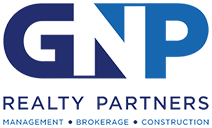Winter officially begins December 21, but Chicago has already experienced its first (and likely not last) sub-freezing temperatures, bringing with them the potential for frozen pipes. While a frozen pipe and the resulting lack of running water is an inconvenience, it also can lead to a burst pipe, causing extensive damage and loss of personal possessions.
Pipe inspection and protection should be part of an annual winterization to-do list for landlords and property owners. Ensure exposed pipes (think basements and crawlspaces) are adequately insulated. Low-cost insulation materials such as foam pipe sleeves or insulating tape can save owners thousands of dollars in water damage. Check for cracks or other signs of corrosion, which could signal a weak spot in the plumbing.
Despite best efforts, Mother Nature occasionally gets the upper hand, especially during prolonged sub-freezing temperatures during a polar vortex, like the one Chicago experienced in January 2019. As problems may ensue overnight when it is typically the coldest, inform tenants about their roles in reducing the incidence of frozen pipes during cold spells and what to do if a pipe does freeze.

Avoid Frozen Pipes
- Maintain a temperature of at least 68⁰ Fahrenheit, even if the unit will be unoccupied overnight or for an extended time, e.g., holiday travel.
- Open cabinet doors below kitchen and bathroom sinks to allow warm air to circulate around pipes (especially if the plumbing is on an exterior wall).
- Use a space heater to warm exposed pipes, but never leave it running unattended. A heating pad “wrap” is also an option.
- Seal (or block) drafts located near exposed pipes.
- Run cold or cool water at a slow drip overnight. Be sure the drain is open and clear. (This assumes the drain line is not exposed to outside temperatures, which would result in an increased likelihood of freezing.)
- Regularly check faucets and appliances to ensure that cold and hot water run normally. Contact the landlord or property manager if the water flow has slowed and you suspect frozen pipes.
Managing Frozen Pipes
- Turn off the water line for your unit, if possible, to reduce the pressure and minimize flooding if the pipe should burst. Immediately notify your landlord or property manager and follow their direction.
- Use a hair dryer to thaw an ice-blocked pipe. Never use an open flame on a frozen pipe! High heat can damage the pipes and create a risk of fire.
- After successfully thawing a pipe, check all faucets and appliances with water lines. If one pipe froze, it’s likely others are at risk.
- Call a licensed plumber immediately if a pipe bursts and notify your landlord or property manager. During winter months, keep the name and number of an HOA- or landlord-approved plumber handy.
Tips for Exterior Plumbing
- Detach hoses from outdoor faucets and spigots. (Drain the remaining water to avoid damage to the hoses.)
- Turn off the exterior water supply valves and open the spigots to drain all remaining water.
- Keep garage doors closed if a water supply line is present.
- Consider investing in outdoor spigot covers, especially for those most vulnerable, e.g., directly exposed to wind or out of the sunlight. Faucet covers are readily available for less than $10.
Frozen pipes are a periodic fact of life in Chicago. Still, informed tenants reduce the likelihood of significant and costly damage. Owners will enjoy greater peace of mind during the cold winter months if tenants understand how to manage risks associated with frozen pipes and know the steps to take in a plumbing emergency, including contact information for an owner-approved plumber for emergencies.
Educating tenants on tips to avoid (and deal with) frozen pipes will increase tenant satisfaction. In addition to demonstrating concern for their wellbeing, it reduces their risk of losing personal possessions due to water damage.
Chicago Management Personnel Services (CMPS) – GNP’s janitorial and maintenance service company – provides a full range of building maintenance services as part of an overall property management operation or as a separate contract, allowing residential HOAs and building owners to determine their preferred level of control over building maintenance contracts.
GNP Realty’s in-house family of diversified companies provides our clients with full-service strategy and hands-on support for all your real estate needs. From brokerage and management to construction and maintenance, we tailor our commercial and residential services to help you achieve your goals as a property owner or investor.








